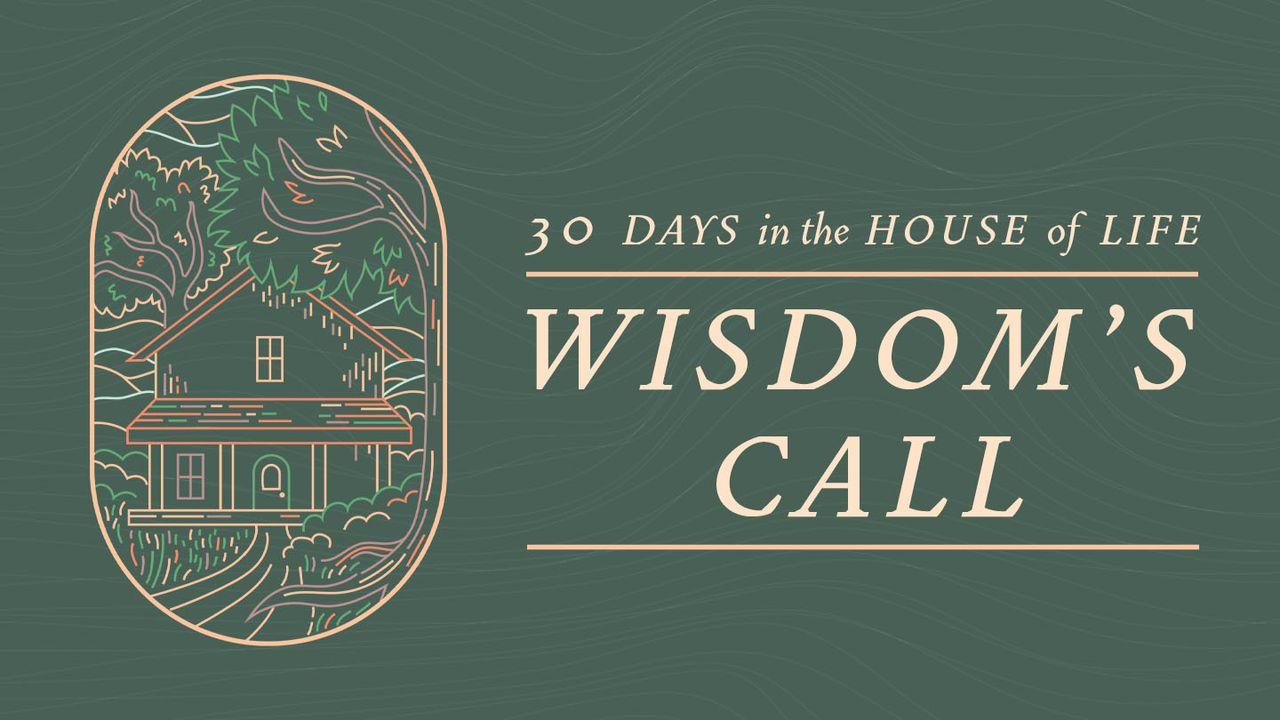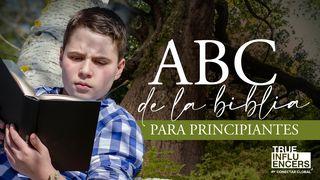Wisdom's Call: 30 Days in the House of LifeMuestra

WISDOM’S BURDEN
I, the Teacher, have been king over Israel in Jerusalem. I applied my mind to examine and explore through wisdom all that is done under heaven. God has given people this miserable task to keep them occupied. I have seen all the things that are done under the sun and have found everything to be futile, a pursuit of the wind.
What is crooked cannot be straightened; what is lacking cannot be counted.
I said to myself, “See, I have amassed wisdom far beyond all those who were over Jerusalem before me, and my mind has thoroughly grasped wisdom and knowledge.”
I applied my mind to know wisdom and knowledge, madness and folly;
I learned that this too is a pursuit of the wind.
For with much wisdom is much sorrow; as knowledge increases, grief increases. (Eccl. 1:12–18)
King Solomon—teacher, preacher, king—wrote a good amount of what we find in the wisdom books of our Scriptures. In truth, as we know, he is regarded by Scripture itself as the wisest among rulers in his day. He captures the modern idea that the more we know and the more we understand, the harder it is to pretend we don’t know. Wisdom— the act of knowing what is right, fair, just, and orderly—will also bring grief as it brings peace.
Why, then, should anyone desire Wisdom’s house if it brings grief or pain? Isn’t that the domain of Folly’s house?
It seems that from one hand wisdom restores a measure of peace to the soul, but the other hand brings the burden of seeing injustice more clearly. The hands combine so that the mind may connect foolish actions with inevitable destructive results.
The more we distance ourselves from our own folly and the hurt we have caused while indulging our own folly, the more our hearts likewise ache to watch the foolish destroy themselves, burn down their relationships, and betray the people around them. We hurt for them because we know the emptiness that awaits them at the end of their temporary pleasure. It’s the same emptiness that we found at the end of ourselves that caused us to cry out for wisdom and life.
Solomon determines what is wise, possibly from his own experience with folly, his own folly and that of the people he ruled. Domestic issues, marital betrayals, crooked lawyers defrauding clients of their meager finances, thefts, murders, adulteries and other betrayals—too many grave injustices to name—were seen up close and personal by Solomon himself. Yet nothing is wasted in God’s economy. As the king aged and as he pulled away from his own folly, God used his adjudicating of these situations to make him more wise.
His writing drips with the regret of a refugee who has visited the House of Folly more than once:
“Absolute futility,” says the Teacher. “Absolute futility. Everything is futile.” What does a person gain for all his efforts that he labors at under the sun? (Eccl. 1:2–3)
Better then to labor not under the sun, but under the Son. Christ is the source of all wisdom, and the only antidote to folly and destruction.
Escritura
Acerca de este Plan

Join author and professor K.A. Ellis on this 30-day meditation on wisdom. Immerse yourself in the wisdom found in scripture through video reflections, audio narrated by the author, and daily readings. "Wisdom has called us, Friend. Come on into this house and come to stay...adventure awaits."
More
Planes relacionados

ABC De La Oración ... Para Principiantes.

1 Tesalonicenses: Modelos a imitar

La Gracia. 7 Claves Para Vivir en Plenitud.

Testigos Del Milagro: La Primera Navidad

¡Levántate! 7 Claves Para Levantarte Y Seguir.
Marcas De Un Discípulo

Confiando en Los Propósitos De Dios

Que El Mundo Crea
